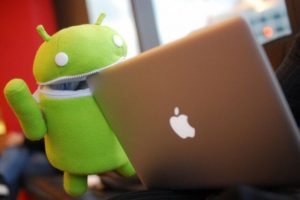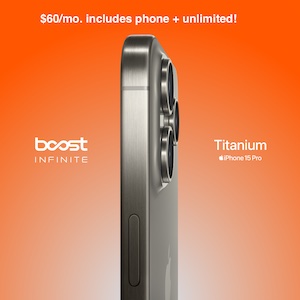Google’s Android Branding, Somewhat Similar To Apple’s Mac OS X, Results In ‘Pie’ On Its Face
COMMENTARY: 11.08.19- Google has been in the news spotlight lately for its extravagant expenditures, first, for a good deed done in June with its substantial donation of $1 billion towards the housing problem in the Silicon Valley where its own headquarters also calls home — although not as generous as the $2.5 billion being contributed by Apple as seen on Monday — and, second, the more recent high profile purchase of the wearable technology company Fitbit (maker of activity and fitness trackers) as announced last Friday at a cost of $2.1 billion, however, there’s no amount of money that can fix the conundrum that has arisen from the Mountain View, California-based internet search engine powerhouse’s attempt to take a page out of the Cupertino, California-based tech giant’s playbook on Mac OS X as the idea for the somewhat similar branding of its Android software: yet another stolen idea in which a simple expense won’t cover to save face for the apparent misstep committed.

It’s a well known fact that Apple has always been known to lead the pack while its competition in the technology sector (and other non tech related companies as well) follow suit and this is just the case with Google and the way it handled the naming conventions for each version release of its mobile operating system. For the latter entity, imitation was the sincerest form of flattery (so to speak) and in doing so? It sure fell, flat, on its face.
Googles attempt to be cute and, well, sweet, with the monikers inspired by just that (e.g., jelly beans and Oreo cookies, just to name a few) for each subsequent major update to its Android software — which was its own spin on the branding scheme of Mac OS X by rival Apple for its computer operating system (initially internal code names, e.g., from Jaguar version 10.2 to Mountain Lion version 10.8, all names of big cats) — was not as widely accepted by, and at times very confusing to, the users of the mobile operating system originally designed for use on non iPhone smartphone devices and subsequently non iPad tablet computers.
Back in August, I wrote a commentary here in this column regarding Apple’s branding scheme with its iPhone and whether it needed to be rethought and simplified to match its other product lines, ditching the numbers and extraneous (and also confusing, in my opinion) monikers such as R and Max instead of established ones like mini or Pro. Coincidentally, two days prior to the publication of my piece on that subject matter, a similar topic was brought up by reporter Lucas Matiney of the website TechCrunch in regard to Google and its Android software (which I came across as a subscriber to that said site’s daily/weekly newsletters but had no connection or influence on my article and the timing happened to be only pure coincidence… especially since I read his editorial after the fact).
In his Week-In-Review newsletter published on August 24 — in which, according to the author himself, where he gives a heavy amount of analysis and/or rambling thoughts on one story while scouring the rest of the hundreds of stories that emerged on TechCrunch that particular week to surface his favorites for his audience’s reading pleasure — Matiney opined on how Google isn’t so sweet these days, and how that its, what he called, beloved naming scheme of alphabetizing sugary things had died.
“The company announced this week that they’re dumping the dessert scheme for a much more boring option. The new Android [software] will be… Android 10.”
Matiney described Google as being one of those companies that always has liked to keep its quirkiness at the forefront of its brand, giving such examples as multi-colored logos but that’s what the company’s branding still evoked for a lot of people as he wrote.
“The company’s more whimsical elements have realistically always been removed from the real world of its business interests, but at this point, the company may only be able to take away from the quirkiness of its brand. Google is just something different now.”
In general, according to Matiney, rebrands always grab attention, and the companies always make broad, sweeping statements about the deep meaning about what the new logo or font or name mean to the mission of the product at hand.
“With Android 10, Google says that their chief concern was promoting the universality of the operating system’s branding.”
Matiney pointed out that they’ve heard feedback over the years that the names weren’t always understood by everyone in the global community. For example? L and R are not distinguishable when spoken in some languages. (So, when some people heard Android Lollipop being said out loud, it wasn’t exactly clear that it referred to the version after Android Kit Kat).
“It’s even harder for new Android users, who are unfamiliar with the naming convention, to understand if their phone is running the latest version.”
In addition, Matiney gave further evidence of Google’s branding scheme failure, writing that pies are not a dessert in some places and that marshmallows are not a popular treat in many parts of the world, referring to Android Pie and Android Marshmallow, respectively (the former version the last to use the sweets/desserts theme).
“There’s certainly room to question whether this decision has more to do with the fact that there aren’t too many desserts starting with the letter Q that immediately come to mind, or that Google marketing has decided to sanitize the Android brand with a corporate wash.”
Oops! (Insert here emoji of man face palming). Too bad quirks aren’t a dessert since that word starts with the letter Q! And speaking of a wash? It sounds like Google is just copying Apple again with its plain and simple branding for iOS, which, only uses numbers.
In Google’s efforts to be clever and one up its rival Apple — which itself eventually would go through a rebranding of its own (though long before Google recently did it with its Android software) for its computer operating system changing Mac OS X to MacOS and using California locales versus big cats to name subsequent major updates of its software (beginning with Mavericks version 10.9) — the Mountain View, California-based internet search engine powerhouse’s branding scheme failed miserably and now the marketing team has chosen to go with the more ordinary solution of beginning to number current and future versions of the Android software: similar in fashion, ironically, to Cupertino’s already established branding scheme for its own mobile operating system.
Or even like the move made by Redmond, Washington-based software juggernaut Microsoft with the rebranding of its Windows computer operating system for PCs which began using numbers with the release of Windows 7 back in 2006 after having used previous monikers such as Windows 95, XP, or Vista beforehand, now currently Windows 10.
Hey! Here’s an idea. Let’s just go ahead and copy Apple yet again since we’ve already done so in the past and have continued to do so over the years (e.g., creating a competitor to the iPhone with the Google Pixel smartphone).
Remember how iOS was the basis for the creation of the Android software shortly after the iPhone and its mobile operating system were unveiled in 2007? Even more so, remember what the late co-founder and former Apple CEO, Steve Jobs, thought about that and swore he would enact full on thermonuclear war against Google for doing so (because he strongly felt that it was a stolen product) and as part of that process, ended up taking the internet search engine powerhouse to court, suing for patent infringements?
Google’s Android software would become the standard and default mobile operating system installed on non iPhone smartphones, surpassing iOS — and even Windows Phone from Microsoft (which was released in 2010, already too late a contender into the arena of mobile operating systems) — as a result, and this really angered Jobs to his dying day.
On a related note, it is interesting to point out that co-founder and former Microsoft CEO,Bill Gates, revealed just yesterday that had the Redmond, Washington-based software juggernaut not been battling an anti-trust case imposed by the U.S. Justice Department, he believed that Windows Mobile (created in 2000 which is the predecessor to the failed Windows Phone software) would be where Google’s mobile operating system currently stands.
It would have been a different world today had that happened and Jobs wouldn’t have been able to accuse Microsoft of copying its own mobile operating system (unlike Windows being based on Mac OS), which, clearly was the opposite of what Google did with its Android software.
One thing’s for sure. Jobs must be turning over in his grave (God rest his soul), or laughing at the prospect of his rival’s failure, over Google and the rebranding of its mobile operating system, that, despite being generic enough by simply using a numbering scheme (something more tried and true which can’t really be trademarked or in essence, stolen), once again copies Apple’s iOS. I can just imagine the late co-founder and former Apple CEO quoting and borrowing the famous line used by the late Ronald Reagan, 40th President of the United States, when the former leader — then the Republican presidential candidate during the 1980 political debates at the time it was said — told incumbent Democrat, Jimmy Carter, 39th President of the United States: there you go again!
That certainly would be almost like Google being served its just desserts (so to speak) and getting pie thrown at its face!
